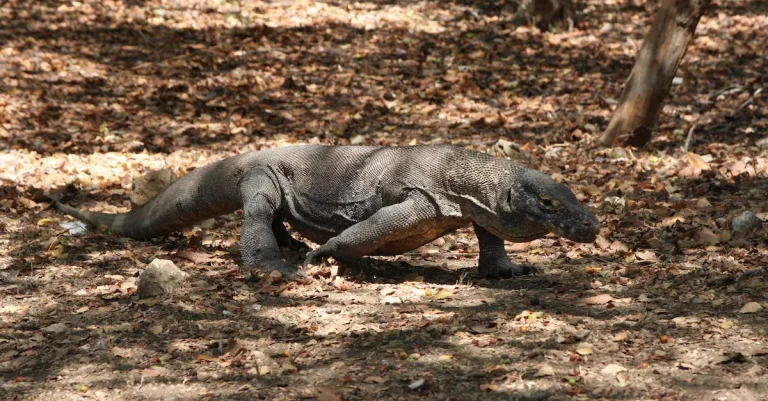Will Cps Take My Baby For Thc In California?
As cannabis use grows more common, many pregnant and new parents worry about testing positive for THC. Could this lead Child Protective Services to remove an infant from the home? While possible, CPS removal solely for THC is rare in California. Let’s look at the nuances involved.
If you’re short on time, here’s a quick answer: CPS is unlikely to take a baby for maternal THC use alone in California. However, other risks may prompt removal if THC impairs parenting abilities.
CPS Drug Testing Policies in California
When it comes to drug testing policies, the Child Protective Services (CPS) in California has specific protocols in place to ensure the safety and well-being of children. These policies aim to determine whether the use of substances, such as THC, poses a risk to a child’s health and safety.
Newborn Testing at Birth
One of the policies implemented by CPS is the testing of newborn babies for substances at birth. This testing is typically done to identify any potential exposure to drugs or alcohol during pregnancy. The goal is to assess whether the child may be at risk of harm or if any further intervention is necessary.
It’s important to note that the mere presence of THC in a newborn’s system does not automatically result in the removal of the child from the parents’ custody. CPS takes a holistic approach and considers various factors, such as the level of exposure, the parents’ ability to provide a safe environment, and the overall well-being of the child.
Parent Drug Testing
CPS may also require parents to undergo drug testing as part of their investigation. This is done to assess whether ongoing substance use poses a risk to the child’s safety and welfare. The frequency and type of drug testing can vary depending on the specific circumstances of each case.
It’s important to comply with any drug testing requirements set forth by CPS. Refusing to undergo drug testing or failing a drug test can raise concerns about a parent’s ability to provide a safe and stable environment for their child.
It is advisable to seek legal advice if you have concerns about the drug testing process or if you believe there may be inaccuracies in the results.
If you are a parent who is concerned about the potential involvement of CPS due to THC use or any other substances, it is crucial to understand your rights and seek legal guidance. Consulting with an attorney experienced in family law can help you navigate the CPS process and protect your family’s best interests.
For more information on CPS drug testing policies in California, you can visit the official website of the California Department of Social Services: https://www.cdss.ca.gov/cdssweb/entres/forms/English/SOC_158A.pdf.
When CPS Could Get Involved
Child Protective Services (CPS) in California is responsible for ensuring the safety and well-being of children. While the use of THC (the psychoactive component of marijuana) is legal for adults in California, there are certain circumstances where CPS may take action if they believe a child’s safety is at risk.
Here are three situations where CPS could potentially get involved:
Evidence of Substance Abuse
If there is evidence of substance abuse by a parent or caregiver, including the use of THC or other drugs, CPS may intervene to protect the child. Substance abuse can impair a person’s judgment, behavior, and ability to provide proper care for a child.
CPS will assess the situation and determine whether the child is in immediate danger or if intervention is required to ensure their safety.
According to a report by the Substance Abuse and Mental Health Services Administration (SAMHSA), in 2019, approximately 7.2 million Americans aged 12 or older had a substance use disorder related to marijuana. It is important to note that CPS will consider the severity of the substance abuse and its impact on the child’s well-being before taking any action.
Newborn Withdrawal
If a newborn tests positive for THC at birth, it may raise concerns about the well-being of the child. Prenatal exposure to THC can potentially lead to withdrawal symptoms in newborns, known as Neonatal Abstinence Syndrome (NAS).
CPS may become involved to ensure the child receives appropriate medical care and to assess the overall safety of the home environment.
According to a study published in the Journal of Pediatrics, there has been an increase in the number of infants with NAS due to maternal marijuana use. However, it is important to note that CPS will consider various factors, including the severity of the newborn’s symptoms and the ability of the parents or caregivers to provide a safe and nurturing environment.
Impaired Caregiving
If a parent or caregiver’s use of THC or other substances significantly impairs their ability to provide proper care for a child, CPS may intervene. Impaired caregiving can include neglect, failure to meet the child’s basic needs, or placing the child in dangerous situations due to substance use.
CPS will assess the level of impairment and the impact it has on the child’s safety and well-being before taking any action.
It is important to note that CPS aims to keep families together whenever possible and only removes children from their homes as a last resort if there are no other viable options for ensuring the child’s safety.
If you have concerns about CPS involvement or need assistance in navigating the process, it is recommended to consult with a legal professional who specializes in family law. For more information on the role of CPS in California, you can visit the official website of the California Department of Social Services (https://www.cdss.ca.gov/).
Steps to Avoid CPS Removal
When it comes to the use of THC in California and the potential involvement of Child Protective Services (CPS), there are steps you can take to avoid having your baby taken away. By being proactive and following these guidelines, you can ensure the well-being of your child while also addressing any concerns from CPS.
1. Disclose Use to Your Doctor
One crucial step is to disclose your THC use to your doctor. Openly discussing your marijuana use can help establish trust and ensure that both you and your baby receive appropriate care. Your doctor can provide guidance on how to manage your use and minimize any potential risks to your child’s health.
It’s important to note that doctors are bound by patient confidentiality laws, meaning they cannot report your marijuana use to CPS without your consent. Being transparent with your healthcare provider allows them to provide the best possible care and support for you and your baby.
2. Follow Treatment Plans
Another important step is to follow any treatment plans recommended by your healthcare provider. This may involve attending counseling sessions, participating in substance abuse programs, or taking prescribed medications to address any addiction or dependency issues.
By actively engaging in treatment, you demonstrate your commitment to your own well-being and that of your child. This can help alleviate any concerns from CPS and show that you are taking proactive steps to address the situation.
3. Ask for Help When Needed
Seeking support from friends, family, or community resources can be invaluable when navigating the challenges associated with THC use and potential CPS involvement. Don’t be afraid to reach out for help when you need it.
There are various organizations and helplines available that can provide guidance, resources, and emotional support during this time. They can help connect you with professionals who can assist in addressing any concerns from CPS and ensure that you have the necessary support system in place.
Remember, it’s important to stay informed about the specific laws and regulations regarding THC use in your state. Familiarize yourself with the current guidelines to ensure you are taking the necessary precautions to protect your child and avoid any unnecessary involvement from CPS.
Working with CPS as a Parent
Dealing with Child Protective Services (CPS) can be a stressful and overwhelming experience for any parent. If you are concerned about your baby being taken away due to THC use in California, it is important to understand how to navigate the system and protect your rights as a parent.
Be Honest
When working with CPS, it is crucial to be honest about your THC use. Trying to hide or lie about your use can actually worsen the situation. CPS is primarily concerned with the safety and well-being of the child, so it is important to show that you are taking responsibility for your actions.
Be prepared to provide information about your THC use, such as how often you consume it, the method of consumption, and whether it is for medicinal or recreational purposes. Providing accurate and honest information will help CPS make an informed decision about the safety of your child.
Comply Fully
Cooperating fully with CPS is essential in demonstrating your commitment to your child’s welfare. This includes attending all scheduled meetings, following any recommendations or requirements set by CPS, and actively participating in any programs or services they may recommend.
It is important to understand that CPS’s main goal is to ensure the safety and well-being of the child. By complying with their requests and showing your willingness to take necessary steps to address any concerns, you can build trust with CPS and increase the likelihood of a favorable outcome.
Get Legal Help
If you are facing a situation where CPS is threatening to take your baby due to THC use, it is crucial to seek legal assistance. An experienced family law attorney can help protect your rights, guide you through the process, and advocate on your behalf.
They can help you understand the specific laws and regulations surrounding THC use in California and develop a strong defense strategy. They can also ensure that CPS is following proper procedures and not overstepping their bounds.
Remember, every case is unique, and the outcome can vary depending on various factors. By seeking legal help, you can have a better understanding of your rights and options and increase your chances of a positive resolution.
For more information on dealing with CPS and legal assistance, you can visit the website of the California Department of Social Services: https://www.cdss.ca.gov/.
Regaining Custody of Your Child
When a child is temporarily removed from a parent’s custody due to concerns about their well-being, it can be a distressing and challenging situation. If you are a parent who has had your child taken away by the Child Protective Services (CPS) in California due to the presence of THC in your system, it is important to understand the steps you can take to regain custody.
Following the Case Plan
One of the first steps towards regaining custody of your child is to closely follow the case plan provided by CPS. This plan is designed to address the concerns that led to the removal of your child and outlines the steps you need to take to demonstrate your ability to provide a safe and nurturing environment for your child.
The case plan may include requirements such as attending parenting classes, participating in drug treatment programs, finding stable housing, or securing employment. It is crucial to take these requirements seriously and actively engage in the recommended services to show your commitment to making positive changes.
Utilizing Services
Utilizing the services provided by CPS and other community resources can greatly enhance your chances of regaining custody of your child. These services may include counseling, substance abuse treatment, mental health support, and parenting education programs.
By actively participating in these services, you not only demonstrate your willingness to address any issues that led to the removal of your child but also acquire the necessary skills and knowledge to be an effective and responsible parent.
This can positively impact the court’s decision regarding the reunification of your family.
Demonstrating Changed Behaviors
One of the key factors in regaining custody of your child is demonstrating changed behaviors. It is essential to show the court that you have addressed any concerns that led to the removal of your child and that you are capable of providing a safe and stable environment.
This may involve showing consistent negative drug tests, maintaining a stable and suitable living arrangement, and demonstrating improved parenting skills. It is crucial to document your progress and gather evidence that supports your claims of positive change.
Remember, regaining custody of your child is a process that requires time, effort, and perseverance. It is important to work closely with your attorney and the assigned social worker to ensure that you are meeting all the necessary requirements and addressing any concerns.
By taking the necessary steps and actively engaging in the reunification process, you increase your chances of being reunited with your child.
Conclusion
While testing positive for THC does not automatically warrant removal in California, it can prompt CPS involvement if coupled with other risks. Being proactive with treatment and asking for help when needed are critical to keeping your family intact.
With some states legalizing recreational cannabis, policies are adapting. Open communication and responsible use can help parents avoid separation from a newborn due to THC.








